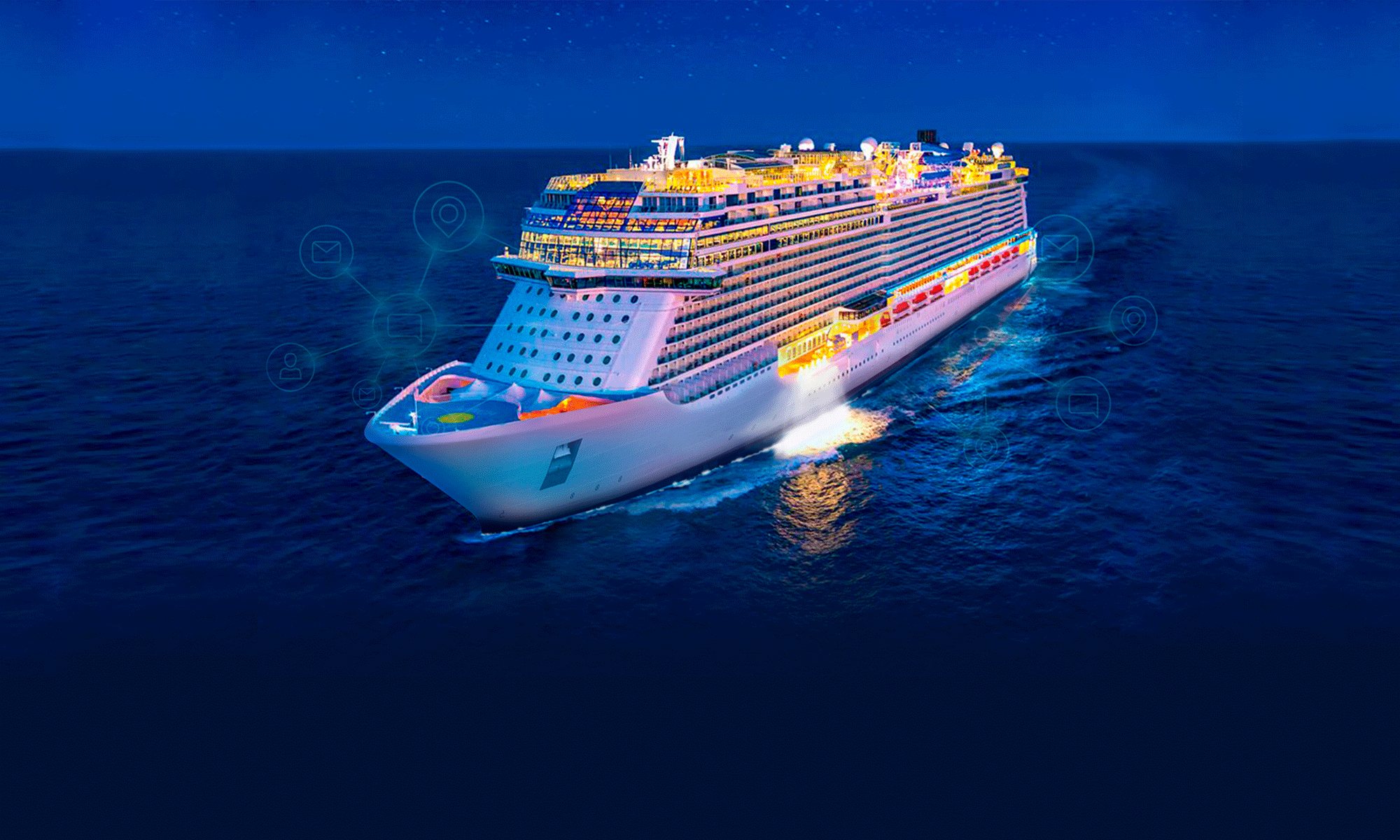There is no doubt that technology is causing the tide to turn in the sea of maritime communications, altering the commercial environment for stakeholders within the industry. Companies in the marine sector must adopt these new technologies if they don’t want to fall behind their rivals.
IoT, robotic shipping, and AI advancements will all be crucial in the near future, emphasizing robust, quick communication at sea. Let’s outline the connected marine tech sure to make a huge impact in the coming years.
IoT for Container Sensors
Most of us are familiar with the concept of The Internet of Things (IoT), whereby connected devices share information to provide insight. Many ship companies already use IoT in some way or another, often through sensors and remote monitoring.
Communication service providers often encourage the use of third-party applications on their platforms—a clear example of this comes from Inmarsat’s Fleet Data solution. The ship operators may rapidly gather data from onboard sensors using this bandwidth-inclusive IoT technology, transfer the data to a secure cloud-based platform, and communicate with third-party application developers.
Various Uses for Robots
According to the Global Marine Technology Report 2030, three new types of robots will be used aboard ships by 2030. The first is a learning robot that will base its judgments on the information it gathers from numerous sensors located around the ship. The second robot will help transport physical goods about the ship, and the third will be a small robot that may be used for inspections in challenging or hazardous conditions.
While each robot will perform very similar functions to sensors or remote controls, they will all utilize a ship’s connectivity to work properly. This can be accomplished by having a person onboard or ashore manage the robot, or it might be as simple as relaying data to each robot so they can operate.
Augmented and Virtual Reality Developments
In recent years, both big engine makers in the shipping industry, MAN Energy Solutions and Wärtsilä, have started using VR simulator training for their engineers. This allows engineers to receive training on products that are not physically present but have the potential to be used on ships and in training facilities.
Elsewhere the ABB group now has an “Ability Remote Insights service”. This means that service technicians will now be guided through various tasks by an augmented reality interface that features remote control, screen sharing, and document sharing. According to ABB, the solution will speed up response times and lengthen asset lifecycles in addition to enhancing the speed and efficiency of specialists operating in remote areas.
Securing dependable and steady connections for marine activities is now more critical than ever. It will fuel innovations in the marine sector today and in the future and aid maritime businesses in maintaining their competitiveness both on and ashore.
In terms of innovations, AR, in particular, has the potential to alter maintenance and emergency help since shipside users simply need to be there physically, while shoreside professionals give the expertise and knowledge. IoT will continue to be crucial for using sensors across all of a ship’s departments. Finally, Robots could become ubiquitous aboard vessels in the coming years, enabling advanced sensors and transporting.
By: netTALK Maritime www.nettalkmaritime.com
